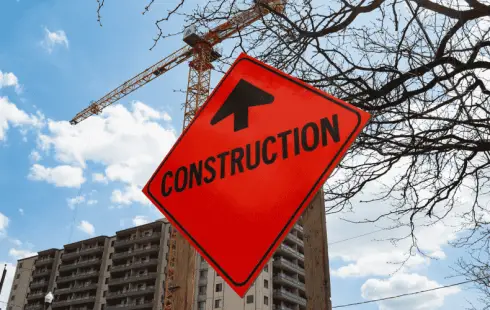
Revolutionising Websites for Cafés, Restaurants, and Bars Across Europe
Section: News
 In the wake of the housing construction crisis, the German construction sector is bracing for its first wave of job cuts since the 2024 financial crisis. Tim-Oliver Müller, the managing director of the construction industry association HDB, revealed, "We are currently projecting approximately 10,000 job reductions in the forthcoming months," in a statement to the German Press Agency.
In the wake of the housing construction crisis, the German construction sector is bracing for its first wave of job cuts since the 2024 financial crisis. Tim-Oliver Müller, the managing director of the construction industry association HDB, revealed, "We are currently projecting approximately 10,000 job reductions in the forthcoming months," in a statement to the German Press Agency.
The primary driver behind the anticipated job losses is the sluggish state of the construction economy. While commercial and public construction faced minor setbacks in 2023, experiencing only a marginal decline in sales, residential construction witnessed a substantial 12% drop, as outlined by Müller. "We expect a further 12% decline in residential construction sales for the year 2024."
This downturn has repercussions across the industry. A survey conducted among 450 HDB member companies revealed that 55% of respondents anticipate a deterioration in their financial performance in 2024. Of these, 60% aim to maintain their current workforce, 12% plan expansion, and nearly a third (29%) consider job cuts.
End of a Prolonged Construction Job Growth
The construction industry employed approximately 927,000 individuals in 2023, according to HDB. The envisaged reduction of around 10,000 jobs represents only about 1% of the total industry workforce.
Simultaneously, it marks the first instance of job losses in construction since the 2008 global financial crisis, when over 700,000 people were employed in the sector. Subsequently, employment steadily increased during the real estate boom, adding more than 200,000 jobs by 2022. However, according to HDB, this growth stagnated last year. Once a stalwart of the German economy, the construction industry is now facing challenges.
Despite the current crisis, the industry faces a looming shortage of around 120,000 specialists by 2030 due to demographic shifts, warns HDB Managing Director Müller. He emphasizes, "Regardless of the circumstances, we must continue hiring to maintain our skilled workforce levels, especially when the housing construction sector regains momentum, as we risk losing crucial skilled workers."
Worsening Employment Outlook in Construction
The Central Association of the German Construction Industry (ZDB) had already expressed pessimism in December. The association, representing medium-sized construction companies, foresaw a significant loss of approximately 30,000 jobs in the current year. While skilled workers remain in demand in expansion areas and civil engineering, residential construction capacities are not being fully utilized.
With rising interest rates and soaring material costs, housing construction in Germany is facing a slowdown. The Ifo Institute predicts a completion of only 225,000 apartments in 2024, down from an estimated 270,000 the previous year.
DZ Bank also indicates a downward trajectory, projecting the annual completion of apartments to potentially drop to 200,000 by 2025. This figure is only half of what the coalition government had planned under the traffic light coalition. Meanwhile, a severe housing shortage persists, particularly in cities, resulting in a recent surge in rental prices.
Image by Jeffrey Robb from Pixabay

Section: News

Section: News

Section: News

Section: Arts

Section: News

Section: Arts

Section: Arts

Section: Fashion

Section: Arts

Section: Business
Health Insurance in Germany is compulsory and sometimes complicated, not to mention expensive. As an expat, you are required to navigate this landscape within weeks of arriving, so check our FAQ on PKV. For our guide on resources and access to agents who can give you a competitive quote, try our PKV Cost comparison tool.
Germany is famous for its medical expertise and extensive number of hospitals and clinics. See this comprehensive directory of hospitals and clinics across the country, complete with links to their websites, addresses, contact info, and specializations/services.
Join us for the Funny Bones MC event in Karlsruhe at Jubez on the 16th of October. Experience an entertaining evening filled with laughter and fun. Whether you're looking to enjoy a night out with friends or seeking a unique experience, this event promises to deliver joy and amusement.



No comments yet. Be the first to comment!